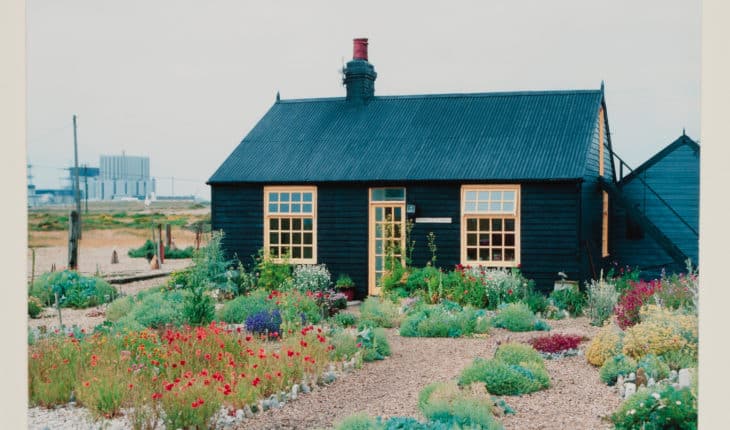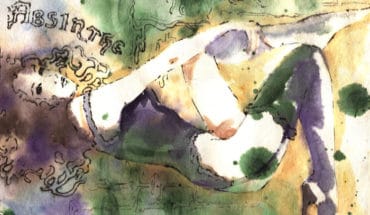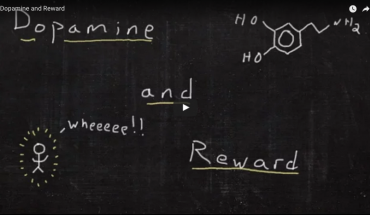Derek Jarman’s Dungeness Garden at the Garden Museum in Lambeth: Escape into a briny world of shingle, salt and seagulls this weekend, by visiting the Garden Museum’s exhibition exploring experimental filmmaker Derek Jarman’s passion for gardening and how his otherworldly garden in Dungeness inspired his work and helped him deal with his HIV diagnosis and illness. His is the only contemporary garden to be created without a boundary on a pebbly beach in the shadow of a menacing, faintly-humming nuclear power station.
When nominated for the Turner prize in 1986 Jarman described painting as ‘my secret garden… an escape’. My Garden’s Boundaries are the Horizon immerses you in the artist’s Dungeness beach-side studio with art, sculpture and film from throughout his career on loan from the Keith Collins Will Trust.
Jarman lived at Prospect Cottage, a fisherman’s shack on the shingle at Dungeness overlooked by the nuclear power station, where he entertained friends including actresses Tilda Swinton and Toyah Willcox. He came across the cottage with a ‘For Sale’ sign while filming on the beach with Swinton. His colourful landscapes from the early 1990s evoke the joy and unusual beauty experienced in his garden which was made by arranging flotsam and driftwood washed up nearby and planted with hardy salt-loving beach plants, both contrasting the bright shingle. You can almost smell the brine!
In contrast Jarman’s black paintings of the 1980s, covered with tar and found objects from the beach and garden, are an emotive response to his HIV diagnosis. Having been diagnosed with HIV on 22nd December 1986, he had resolved ‘to get as much out of life as possible’ and started creating the garden. Some of the magic of his garden has been transposed to the Garden Museum’s exhibition.
As an experimental filmmaker, Jarman was used to dealing with problems imaginatively and using artifice to make magic. He buried compost beneath the shingle surface of the beach to create the illusion that plants appear to be growing from the pebbles. More conventionally, he began his garden with thirty rose plants, transported to Dungeness from a nursery in Kensington.
Since Jarman died of AIDS in 1994, his cottage and garden have attracted many visitors, particularly art students, film-buffs and garden designers, but the house has never been open to the public, which makes this exhibition more welcome. On display are Jarman’s artworks and excerpts from his films alongside personal items, such as tools borrowed from his cottage. His garden evokes resilience and an uplifting sense that if a garden can be made on a barren, stony beach lashed by the wind and sprayed with sea-salt all year round, it can be made anywhere, however vulnerable the place is.
After you have visited the exhibition take a walk around The Garden Museum. It was founded in 1977 to rescue from demolition the abandoned ancient church of St. Mary’s, which is the burial place of John Tradescant (c1570 – 1638), one of England’s first well-known gardeners and rare plant-hunter and collector. His elegant tomb is in the centre of a knot garden planted with flowers which grew in his London garden around four hundred years ago. The interior of the church is used for exhibitions, events and talks with a botanical flavour, in a modern gallery space. The church is not only historically important but also a tranquil and beautiful oasis in the centre of bustling London, nurtured by a small horticultural team of staff and volunteers. The garden is lovingly planted with flowers and shrubs introduced by John Tradescant and his family – such as the scarlet runner bean, tulip tree and red many amongst others.
Rather like Jarman’s garden growing between stones. on Dungeness beach, The Garden Museum is a tranquil oasis offering temporary escape from the everyday stress of your NHS job.
Derek Jarman: My Garden’s Boundaries are the Horizon is at the Garden Museum, Lambeth, 5 Lambeth Palace Road, London SE1 7LB, extended until 13th December 20th tel 0207 401 8865 gardenmuseum.org.uk
- Dream Worlds a new exhibition in Cambridge - 14th December 2024
- “All Our Stories” a major new exhibition - 26th September 2024
- Dance yourself well - 23rd June 2024






